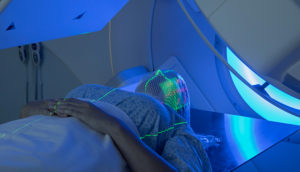
FDA Fast Tracks New Head and Neck Cancer Treatment
A new drug is showing promise in treating some of the most challenging types of cancers.

The United States Food and Drug Administration (FDA) is fast tracking its therapeutic investigation into tipifarnib, a new drug aimed at treating patients with head and neck squamous cell carcinomas (HNSCC) with HRAS gene mutations.
Tipifarnib works by blocking an important enzyme involved in activating the mutated HRAS protein. By blocking this enzyme, tipifarnib might switch off the HRAS-mutant protein and block the growth of cancer cells. Taken orally, the drug has been found to be safe and well tolerated by patients.1,2
TREATMENT SIDE EFFECTS
Head and neck cancers are often not diagnosed until late in the game. Patients are frequently faced with a monumental struggle, not only due to the cancer, but the treatments as well. These usually include a combination of chemotherapy and radiation, which can devastate oral and osseous tissues.
Dry mouth—either hyposalivation or xerostomia—is a common side effect of cancer treatments, and can be particularly bothersome. In true hyposalivation, salivary output diminishes by at least 50%. Because normal salivary gland function plays a crucial role in maintaining good oral health, the lack of it can be problematic on a number of levels.
MANAGING SYMPTOMS
Dry mouth not only opens the door to dental caries, but also results in mucositis, diminished sense of taste, and difficulty speaking, eating, and swallowing. Lifestyle changes, such as increasing water intake, can help, as can sucking on sugar-free candy and chewing sugar-free gum. Also beneficial is the avoidance of caffeine, tobacco, and sugary, spicy, salty, or dry foods. Even the use of a humidifier at night is reportedly advantageous. But there are oral health care products available that are specially designed to help patients persevere.
To fortify dentition against plaque formation, gingivitis, and caries proliferation—and to bring relief—dentifrices containing fluoride, calcium lactate, and cetylpyridinium can help. Those containing calcium phosphates can foster remineralization. Secretagogues, such as pilocarpine and cevimeline, can stimulate salivary glands if they are still viable. Other methods include chewing xylitol gum, electrostimulation, acupuncture, and dietary supplements. There is even work being done in regeneration of salivary glands through bioengineering.
New products are being introduced all the time to combat the discomfort associated with dry mouth. One new formulation recently introduced works like natural saliva to bring relief. Available in a gel, spray, or toothpaste, it contains hyaluronic acid, a high-viscosity humectant, to boost tissue hydration. But perhaps most important, receiving regular dental care can help patients resolve discomfort from dry mouth and ensure that oral health is maintained.
REFERENCES
1. Cavallo J. AACR-NCI-EORTC: Activity of tipifarnib in patients with HRAS-mutant head and neck squamous cell carcinoma. Available at: click here. Accessed February 10, 2020.
2. Ho AL, Pfister DG. A study of tipifarnib in patients with head and neck cancers with HRAS mutations. Available at: click here. Accessed February 10, 2020.

